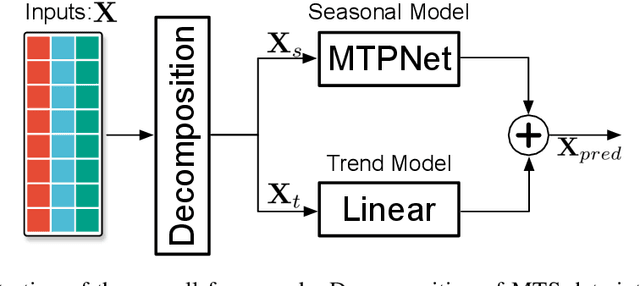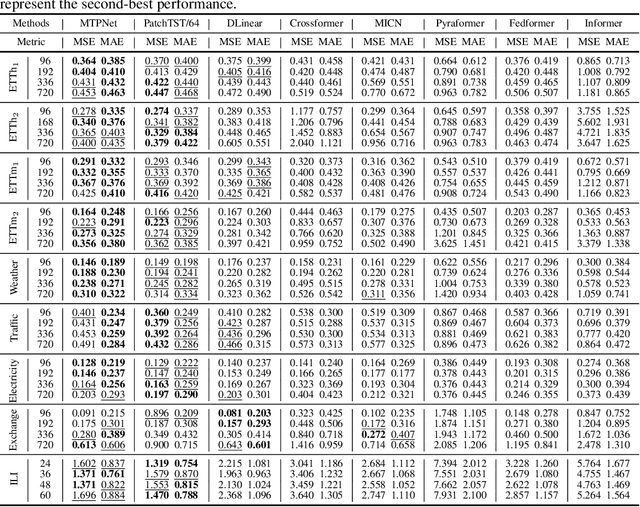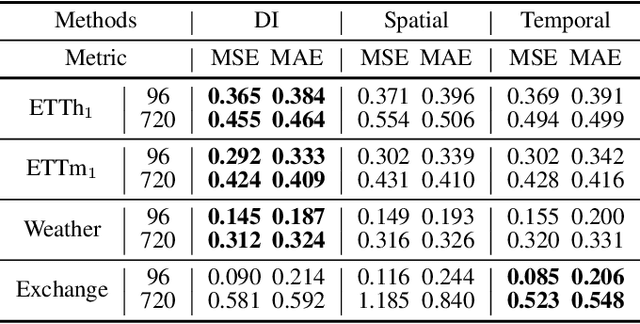Frederick C. Harris Jr
Dozerformer: Sequence Adaptive Sparse Transformer for Multivariate Time Series Forecasting
Dec 11, 2023Abstract:Transformers have achieved remarkable performance in multivariate time series(MTS) forecasting due to their capability to capture long-term dependencies. However, the canonical attention mechanism has two key limitations: (1) its quadratic time complexity limits the sequence length, and (2) it generates future values from the entire historical sequence. To address this, we propose a Dozer Attention mechanism consisting of three sparse components: (1) Local, each query exclusively attends to keys within a localized window of neighboring time steps. (2) Stride, enables each query to attend to keys at predefined intervals. (3) Vary, allows queries to selectively attend to keys from a subset of the historical sequence. Notably, the size of this subset dynamically expands as forecasting horizons extend. Those three components are designed to capture essential attributes of MTS data, including locality, seasonality, and global temporal dependencies. Additionally, we present the Dozerformer Framework, incorporating the Dozer Attention mechanism for the MTS forecasting task. We evaluated the proposed Dozerformer framework with recent state-of-the-art methods on nine benchmark datasets and confirmed its superior performance. The code will be released after the manuscript is accepted.
Multi-scale Transformer Pyramid Networks for Multivariate Time Series Forecasting
Aug 23, 2023



Abstract:Multivariate Time Series (MTS) forecasting involves modeling temporal dependencies within historical records. Transformers have demonstrated remarkable performance in MTS forecasting due to their capability to capture long-term dependencies. However, prior work has been confined to modeling temporal dependencies at either a fixed scale or multiple scales that exponentially increase (most with base 2). This limitation hinders their effectiveness in capturing diverse seasonalities, such as hourly and daily patterns. In this paper, we introduce a dimension invariant embedding technique that captures short-term temporal dependencies and projects MTS data into a higher-dimensional space, while preserving the dimensions of time steps and variables in MTS data. Furthermore, we present a novel Multi-scale Transformer Pyramid Network (MTPNet), specifically designed to effectively capture temporal dependencies at multiple unconstrained scales. The predictions are inferred from multi-scale latent representations obtained from transformers at various scales. Extensive experiments on nine benchmark datasets demonstrate that the proposed MTPNet outperforms recent state-of-the-art methods.
 Add to Chrome
Add to Chrome Add to Firefox
Add to Firefox Add to Edge
Add to Edge